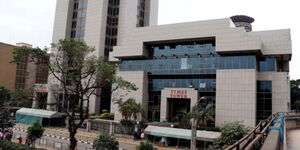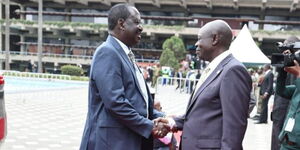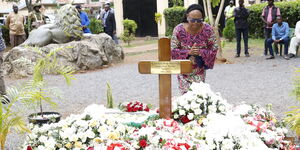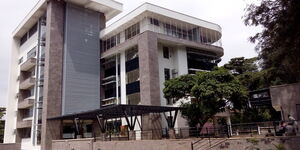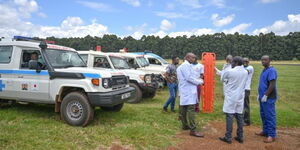Nairobi Governor Johnson Sakaja has explained the thinking behind his county government's move to phase out business tents from the Central Business District (CBD).
Sakaja, who has faced an onslaught of criticism in recent weeks, including an impeachment attempt, spoke during a radio interview on Wednesday, September 17, where he explained that the move was a direct response to the rising chaos within the city centre.
According to Sakaja, the unchecked mushrooming of tents used for selling wares, particularly mobile phones, was becoming a nuisance and interfering with the CBD's aesthetic.
“Everyone had set up ten tents, some selling phones and other items, without any structure. I prohibited this behaviour and made it clear, even to Cabinet Secretary Aden Duale, that there must be proper organisation," Sakaja explained.
Citing walkways along the Nairobi National Archives as an example of how the city can look without the tents, Sakaja revealed plans to provide designated areas for such businesses.
The county boss further emphasised that the goal was to ensure the CBD did not resemble an open-air market, especially since the capital is a key reflection of the entire country.
“There must be order in the CBD, and we are doing so in all of the CBD because we can't have a situation where the city looks like a market. It must give the aesthetic of a capital city," he went on.
Business tents had grown in popularity, particularly after COVID-19, but concerns were raised over the cost of having tens of tents mushroom in the city centre.
Not only did rent-paying businesses in the CBD lament about unfair competition, but others claimed the tents posed a security threat.
This is not the first time Sakaja has taken a firm stance on street vending. Earlier in the year, hawkers were warned against trading along areas like Moi Avenue, Haile Selassie Avenue, Kenneth Matiba Road, Latema Road, Ronald Ngala Street, Mfangano Street, Hakati Road, and River Road as areas that are off-limits to hawkers.
Designated backstreets are located along the road from Tom Mboya Street to Kirinyaga Road.
In another concocted effort to improve the city's aesthetics, the Nairobi County government also recently intensified its crackdown on unlawful billboards on City avenues.
In April 2024, the Nairobi Metropolitan Service (NMS) also embarked on the construction of new passenger walkways and cycle lanes in a move that was aimed at decongesting the city.
The construction works began after the county secured Ksh8.7 billion in funding from the United States government.

